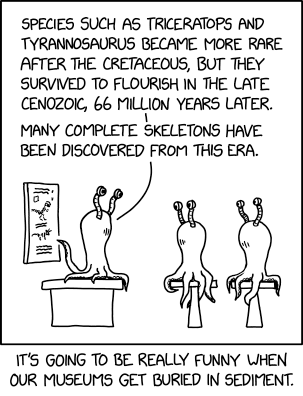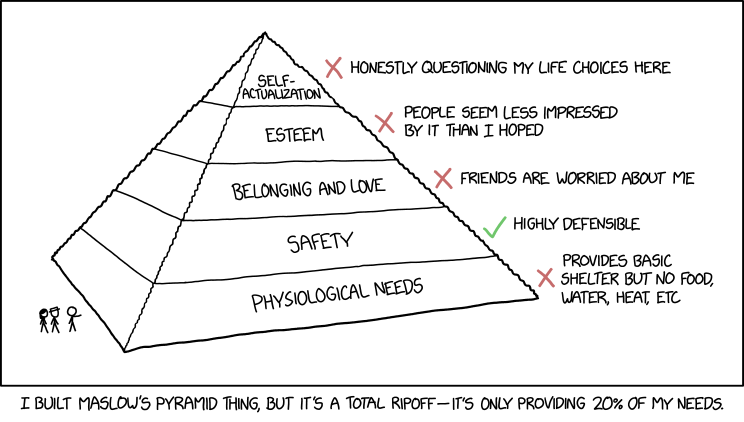Suppose a man has already murdered most of your family, including several of your children, for no other reason than that he believes your kind doesn’t deserve to exist on earth. The murderer was never seriously punished for this, because most of your hometown actually shared his feelings about your family. They watched the murders with attitudes ranging from ineffectual squeamishness to indifference to unconcealed glee.
Now the man has kidnapped your last surviving child, a 9-year-old girl, and has tied her screaming to train tracks. You can pull a lever to divert the train and save your daughter. But there’s a catch, as there always is in these moral dilemmas: namely, the murderer has also tied his own five innocent children to the tracks, in such a way that, if you divert the train, then it will kill his children. What’s more, the murderer has invited the entire town to watch you, pointing and screaming “SHAME!!” as you agonize over your decision. He’s persuaded the town that, if you pull the lever, then having killed five of his children to save only one of yours, you’re a far worse murderer than he ever was. You’re so evil, in fact, that he’s effectively cleansed of all guilt for having murdered most of your family first, and the town is cleansed of all guilt for having cheered that. Nothing you say can possibly convince the town otherwise.
The question is, what do you do?
Zionism, to define it in one sentence, is the proposition that, in the situation described, you have not merely a right but a moral obligation to pull the lever—and that you can do so with your middle finger raised high to the hateful mob. Zionism is the belief that, while you had nothing against the murderer’s children, while you would’ve wanted them to grow up in peace and happiness, and while their anguished screams will weigh on your conscience forever, as your children’s screams never weighed on the murderer’s conscience, or on the crowd’s—even so, the responsibility for those children’s deaths rests with their father for engineering this whole diabolical situation, not with you. Zionism is the idea that the correct question here is the broader one: “which choice will bring more righteousness into the world, which choice will better embody the principle that no one’s children are to be murdered going forward?” rather than the narrowly utilitarian question, “which choice will lead to fewer children getting killed right this minute?” Zionism is the conviction that, if most of the world fervently believes otherwise, than most of the world is mistaken—as the world has been mistaken again and again about the biggest ethical questions all through the millennia.
Zionism, so defined, is the deepest moral belief that I have. It’s deeper than any of my beliefs about “politics” in the ordinary sense. Ironically, it’s even deeper than my day-to-day beliefs about the actual State of Israel and its neighbors. I might, for example, despise Benjamin Netanyahu and his ministers, might consider them incompetent and venal, might sympathize with the protesters who’ve filled the streets of Tel Aviv to demand their removal. Even so, when the murderer ties my child to the train tracks and the world cheers the murderer on, not only will I pull the lever myself, I’ll want Benjamin Netanyahu to pull the lever if he gets to it first.
Crucially, everything worthwhile in my life came when, and only when, I chose to be “Zionist” in this abstract sense: that is, steadfast in my convictions even in the face of a jeering mob. As an example, I was able to enter college three years early, which set the stage for all the math and science I later did, only because I finally said “enough” to an incompetent school system where I was bullied and prevented from learning, and to teachers and administrators whose sympathies lay with the bullies. I’ve had my successes in quantum computing theory only because I persisted in what at the time was a fairly bizarre obsession, rather than working on topics that almost everyone around me considered safer, more remunerative, and more sensible.
And as the world learned a decade ago, I was able to date, get married, and have a family, only because I finally rejected what I took to be the socially obligatory attitude for male STEM nerds like me—namely, that my heterosexuality was inherently gross, creepy, and problematic, and that I had a moral obligation never to express romantic interest to women. Yes, I overestimated the number of people who ever believed that, but the fact that it was clearly a nonzero number had been deterrent enough for me. Crucially, I never achieved what I saw for years as my only hope in life, to seek out those who believed my heterosexuality was evil and argue them out of their belief. Instead I simply … well, I raised a middle finger to the Andrea Dworkins and Arthur Chus and Amanda Marcottes of the world. I went Deep Zionist on them. I asked women out, and some of those women (not having gotten the memo that I was “problematic,” gross, and worthless) said yes, and one of them became my wife and the mother of my children.
Today, because of the post-October-7 public stands I’ve taken in favor of Israel’s continued existence, I deal with emails and social media posts day after day calling me a genocidal baby-killing monster. I’ve lost perhaps a dozen friends (while retaining hundreds more friends, and gaining some new ones). The haters’ thought appears to be that, if they can just raise the social cost high enough, I’ll finally renounce my Zionist commitments and they can notch another win. In this, they oddly mirror Hamas, Hezbollah, and the IRGC, who think that, if they can just kill and maim enough Israelis, the hated “settler-colonialist rats” will all scurry back to Poland or wherever else they came from (best not to think too hard about where they did come from, what was done to them in those places, how the Palestinian Arabs of the time felt about what was done to them, or how the survivors ended up making a last stand in their ancestral home of Israel—even afterward, repeatedly holding out olive branches that were met time after time with grenades).
Infamously, Israel’s enemies have failed to understand for a century that, the more they rape and murder, the more Zionist the hated Zionists will become, because unlike the French in Algeria or whatever, most of the Zionists have no other land to go back to: this is it for them. In the same way, my own haters don’t understand that, the more they despise me for being myself, the more myself I’ll be, because I have no other self to turn into.
I’m not opening the comments on this post, because there’s nothing here to debate. I’m simply telling the world my moral axioms. If I wrote these words, then turned to pleading with commenters who hated me because of them, then I wouldn’t really have meant the words, would I?
To my hundreds of dear friends and colleagues who’ve stood by me the past two years, to the Zionists and even just sympathetic neutrals who’ve sent me countless messages of support, but who are too afraid (and usually, too junior in their careers) to speak up in public themselves: know that I’ll use the protections afforded by my privileged position in life to continue speaking on your behalf. Know that I’m infinitely grateful, that you give me strength, and that if I can give you a nanoparticle of strength back to you, then my entire life wasn’t in vain. And if I go silent on this stuff from time to time, for the sake of my mental health, or to spend time on quantum computing research or my kids or the other things that bring me joy—never take that to mean that I’ve capitulated to the haters.
To the obsessive libelers, the Peter Woits and other snarling nobodies, the self-hating Jews, and those who’d cheer to see Israel “decolonized” and my friends and family there murdered, I say—well, I don’t say anything; that’s the point! This is no longer a debate; it’s a war, and I’ll simply stand my ground as long as I’m able. Someday I might forgive the Gentiles among you if you ever see the light, if you ever realize how your unreflective, social-media-driven “anti-fascism” led you to endorse a program that leads to the same end as the original Nazi one. The Jews among you I’ll never forgive, because you did know better, and still chose your own comfort over the physical survival of your people.
It might as well be my own hand on the madman’s lever—and yet, while I grieve for all innocents, my soul is at peace, insofar as it’s ever been at peace about anything.
Update (Aug. 29): This post was born of two years of frustration. It was born of trying, fifty or a hundred times since October 7, to find common ground with the anti-Zionists who emailed me, messaged me, etc.—“hey, obviously neither of us wants any children killed or starved, we both have many bones to pick with the current Israeli government, but surely we at least agree on the necessity of defeating Hamas, right? right??“—only to discover, again and again, that the anti-Zionists had no interest in such common ground. With the runaway success of the global PR campaign against Israel—i.e., of Sinwar’s strategy—and with the rise of figures like Mamdani (and his right-wing counterparts) all over the Western world, anti-Zionists smell blood in the water today. And so, no matter how reasonable they presented themselves at first, eventually they’d come out with “why can’t the Jews just go back to Germany and Poland?” or “the Holocaust was just one more genocide among many; it doesn’t deserve any special response,” or “why can’t we dismantle Israel and have a secular state, with a Jewish minority and a majority that’s sworn to kill all Jews as soon as possible?” And then I realize, with a gasp, that we Jews really are mostly on our own in a cruel and terrifying world—just like we’ve been throughout history.
To say that this experience radicalized me would be an understatement. Indeed, my experience has been that even most Israelis, who generally have far fewer illusions than we diaspora Jews, don’t understand the vastness of the chasm that’s formed. They imagine that they can have a debate with outsiders similar to the debates playing out within Israel—one that presupposes basic factual knowledge and the parameters of the problem (e.g., clearly we can’t put 7 million Jews under the mercy of Hamas). The rationale for Zionism itself feels so obvious to them as to be cringe. Except that, to the rest of the world, it isn’t.
We’re not completely on our own though. There remain decent people of every background, who understand the stakes and feel the weight of history—and I regularly hear from them. And whatever your criticisms of Israel’s current tactics, so long as you accept the almost comically overwhelming historical case for the necessity of Jewish self-defense, this post wasn’t aimed at you, and you and I probably could discuss these matters. It’s just that the anti-Zionists scream so loudly, suck up so much oxygen, that we definitely can’t discuss them in public. Maybe in person sometime, face to face.






